Podcast: Download (Duration: 1:06:34 — 54.1MB)
Subscribe: Spotify | TuneIn | RSS | More
Some people say that publishing has already been disrupted, that this current state is the new model. But I don’t think the disruption has even started yet. As Jeff Bezos says, “it’s always Day One.”
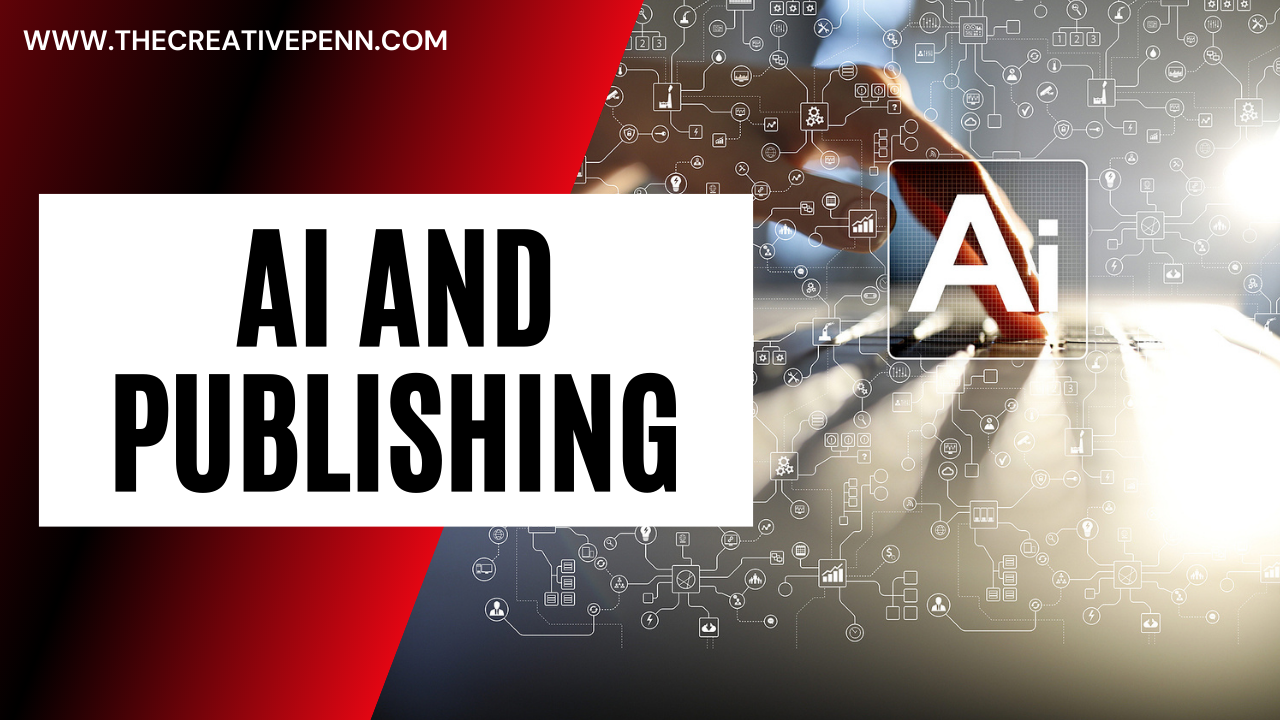
In this episode, I'll talk about some of the possible disruptions to come for authors and the publishing industry due to the rise of Artificial Intelligence (AI) in the next 10 years.
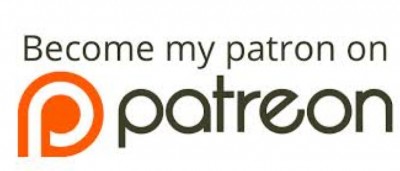
Why write about AI now?
Ten years ago, when I started self-publishing, I was over-the-top excited about the potential of ebooks (see my embarrassing video here!). I could see the incredible possibilities as a creator to reach the whole world with my words.
Since starting out in 2008, I have built a multi-six-figure business as an author-entrepreneur, taking action on that feeling of optimism and learning everything I needed to know to write, publish, market, and make a living with my writing. [See my timeline here].
I started blogging and making money online in 2008 and self-published on the Kindle as soon as it became available. I started my podcast in 2009 before it was even called podcasting and jumped on Twitter around that same time.
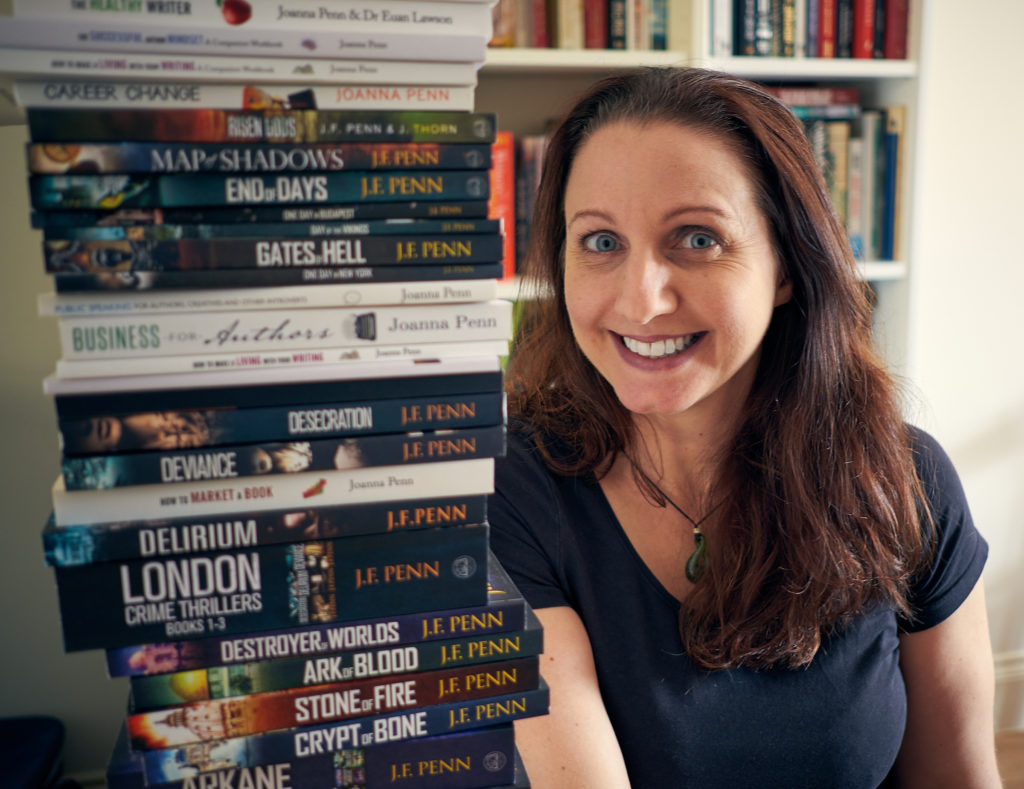
I’ve adopted new tools over time — like Scrivener for writing and Vellum for publishing — as well as working with new partners like Ingram Spark for print and FindawayVoices for audio plus the incumbents like Amazon, Apple, and Kobo — but I haven’t really seen a significant change in my business model over the last ten years.
Then, in 2016, I talked on my podcast about Alpha Go Zero beating Lee Sodol at the game of Go and I had an aha moment similar to the one I had when I read my first ebook on the Kindle. Since then, I’ve been devouring books, audiobooks, and podcasts about AI and also attending events about AI developments, sharing thoughts in my futurist segments every Monday.
In the last six months, I’ve felt a significant acceleration — a shift from AI being a thing of the future to it becoming very much of the now. It feels like 2009 all over again in terms of the level of excitement I feel and the new tools that are emerging are both exhilarating but also terrifying for those who don’t embrace the change.
Before you start to envision anything too dark about our future, I am even more excited about the future for authors and publishing in a new world powered by AI tools, and I am determined to be part of the next shift.
Humans are innately creative and in this new AI-powered world, we can create even more than we ever dreamed possible.
In this article, I outline the ways in which AI might impact the business model of authors and the publishing industry over the next ten years and how we can surf the change rather than drowning in the deluge to come. I've built a new business plan based on these possibilities because I want to embrace AI rather than resist it.
Here’s the overview and then I’ll go into each one in details as well as how to react to these changes. These are in no particular order.
- Non-fiction books, blog posts, and news articles will be written by AI
- Copyright law will be challenged as books are used to train AIs which then produce work in the voice of established authors
- Voice synth technology will replace human narrators for mass market audiobook narration
- Voice search will disrupt text-based SEO and if you don’t have voice content, you will be invisible.
- Translation will be performed by AI — for books as well as other content
- Content will explode exponentially, and AI discoverability and marketing tools will help navigate the tsunami
- AI-augmented creativity will develop and more people will want to be writers
- Print publishing will shift into a green, sustainable model with AI-assisted micro-print-on-demand
- Expansion of mobile reading + micropayments enabled by 5G mobile and blockchain technology + four billion new people online = explosion of reading
Please do let me know your thoughts on these topics — but please do check the sources I mention before you rant as I am not making this stuff up 🙂
(1) Non-fiction books, blog posts, and news articles will be written by AI
This is already happening.
Text generation AI is already used for journalism including tools and companies like Automated Insights, Narrative Science, Bertie, and Heliograf [Forbes]
The first AI generated textbook was published in April 2019. “Writing in the introduction, Springer Nature’s Henning Schoenenberger (a human) says books like this have the potential to start “a new era in scientific publishing” by automating drudgery.” [The Verge]
This is surely just the beginning. The ‘write and publish faster’ model will soon be broken. You cannot write as fast as AI. It doesn’t get tired or burn out and it can consume millions of academic papers or books much faster than you can read.
Publishers are not charities and authors are basically content creators, writing products to be sold. An in-house proprietary creative AI will work constantly with no hand-holding and no need to be looked after in any way.
Of course, human editorial will be more important for choosing topics and shaping the direction of production, as well as editing the finished product, but expect far more content creation by AIs over time.
If you are a freelance writer doing work that does not have a personal stamp on it, check my thoughts below on doubling down on being human.
(2) Copyright law will be challenged as books are used to train AIs which then produce work in the voice of established authors
AI has exploded in the last few years because of two main developments: deep learning and big data.
In that 2016 Go match, Deep Mind’s AI Alpha Go Zero beat Lee Sodol, the Go champion, with creative moves that went beyond the comprehension of Go masters [Wired].
Alpha Go Zero was not programmed with rules by humans. It learned by itself through playing the game, and then by playing its own previous iterations until it surpassed all human players.
That is the true shift behind the acceleration of AI since 2016. AI is no longer constrained by human programmers telling it what to do. Just give a deep learning algorithm enough data and let it train itself.
As Google Head of Decision Intelligence, Cassie Kozyrkov, said at the WIRED conference in London recently, “Optimize this objective on that dataset … Go!”
Of course, the problem then becomes the dataset you train it on, as we have already seen with the social media bots that end up spouting hate speech because they learn it from humans. Curation of the learning dataset is key, as well as the objective you set the AI.
For example, what if my objective is to write a bestselling horror novel — and what if I give the AI the entire Stephen King backlist to learn from?
Or the top 1000 bestselling horror novels from Amazon?
I could probably do a rudimentary version of that right now with AWS Amazon Comprehend (which discovers insight and relationships in text) and then utilize a Natural Language Generation [Wikipedia] tool like GPT2, considered so dangerous that it has not been released (OpenAI), but of course, many other such tools will be created.
The first movie has been created from a screenplay written by an AI [Ars Technica]. While the result might not be high art, it’s a first draft, and it took only a few minutes to create (after much deep learning from existing scripts).
The first novel has been written by an AI [Singularity Hub], OpenAI's MuseNet generates music at the click of a button [The Verge], Google's AI is writing poetry [Futurism]; AI music is changing the way hits are made [The Verge]; The first piece of AI-generated art has been sold at Christie's for $432,500 [Christies.com]
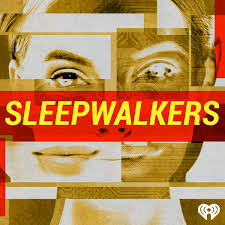
How long does it take a human to create a first draft? And how much more do you have to look after that human? Will big film and TV care if they use an AI for the next iteration of a superhero franchise?
This type of AI creative scenario is already being questioned for the music industry.
“Say an AI system is trained exclusively on Beyoncé’s music … If that system then makes music that sounds like Beyoncé, is Beyoncé owed anything? Several legal experts believe the answer is no.” [The Verge]
There is no doubt in my mind that something like this will be achieved and probably quite soon. Given how scammers love to scam [David Gaughran], and the plagiarism scandals seen in the author community [The Guardian], as well as those who continue to flood Kindle Unlimited with mass-produced books, someone will do this for books, so we have to consider the ramifications.
If I train an AI on the works of Stephen King and it writes a new book with no single sentence that is plagiarized, but is clearly in the ‘voice’ of King, who owns the copyright on that book?
King didn’t write it. The AI did.
Currently, the view is that non-humans can’t have copyright [Robotics Law Journal], but Stephen King didn't write the book, so do I own it? Or does the company that created the AI tool?
I currently use tools like Scrivener and Vellum to write and publish my books, but no one is arguing that those ‘tools' own the copyright to my books. So if I as an author use the Stephen King generator model to write a new book, can I own that copyright? Can I publish that book under my own name?
Personally, I think this is a form of plagiarism. It uses Stephen King’s hard work to train an AI for my own purposes. Since I love his work, I want King himself to be rewarded for it and continue to create, but many do not share the ethical boundaries that I do, and of course, ethics are not legality anyway.
[For more on ethics, check out the Ethical Author code by the Alliance of Independent Authors.]
As an author, I’m excited by these possibilities. I would love to build a natural language generation model based on my books. I’d use that to help me generate first drafts based on adding new ideas to the mix. Perhaps I would even license that model to others to write books and take a percentage of the income.
[Note: Deep learning needs a lot of data, so books by one author would not be enough to train a model, at least right now. It's more likely that a genre-specific publisher with rights to a whole catalog could train a model based on their backlist.]
This might even spawn a new sub-genre of mash-up books, for example, in my model, I might use 30% Stephen King, 30% Dan Brown, and 40% J.F.Penn to create books with a new ‘voice.’
If I was Stephen King (or his publisher), I would be looking at licensing my backlist to an AI text generator model right now in order to own this space before anyone else.
(3) Voice synth technology will replace human narrators for mass market audio narration
You can already use Amazon Polly to read your audiobook and release it as a podcast. You can’t publish it on the audiobook retail platforms — yet — but it is only a matter of time until AI voices are indistinguishable from human narrators.
DeepZen.io promises to be one step closer with “sector-specific solutions that will eliminate the need to use studios and lengthy recording sessions by creating a human-like quality of speech with emotion that can be edited by using intuitive tools. “The company claims that it could reduce the time and cost to produce audiobooks by up to 90%.” [Digital Trends]
I listen to some non-fiction narrators right now and wonder if they are actually bots anyway! I also listen on 1.5x or 2x speed so the ‘quality’ is less important than the content. Given that the Audible app already has 3.5x speed available, it’s clear that many hardcore listeners are also more concerned with content than narration experience.
Of course, there will still be room for gorgeous audio productions by human narrators and performers — but these will be a lot more expensive to produce and to buy. It will be a treat, like going to the theatre, something you buy occasionally and as an experience, rather than for your daily audio consumption.
If the main platforms continue to reject AI narrated books, then a new subscription platform will emerge that only has AI narrated content and it will be a whole lot cheaper than the human-read versions. There may well be a new license for AI narration, a further extension of the audio copyright possibilities.
This will stratify the audiobook market into ‘mass consumption’ AI narrated audio content and books, and a layer of ‘artisanal’ audio, that is created and produced by humans. This is already starting to happen with the full cast productions that Audible is investing in now and I have bought a couple of those for the pleasure of the ‘experience,’ but it is the minority of my listening.
As text-to-speech narration becomes indistinguishable from human narration, famous actors and narrators will license their voices to AI models so they can be paid for recognition but not have to do the work of narration. This will make it cheaper to have pro voices and accelerate audio even more.
Those actors may even sell their voices as some kind of trademark so they can narrate from beyond the grave, in the same way that Enid Blyton among others is still putting out books.
I’ve had a podcast for ten years and in my small niche on the internet, I have a ‘voice brand.’ I’m now narrating my own audiobooks because of this development. I intend to develop my own AI voice model that you could license if you want me to narrate your book. Check out Lyrebird.ai to see the beginnings of this technology emerging already.
(4) Voice search will disrupt text-based SEO and if you don’t have voice content, you will be invisible
Audiobooks are the fastest growing segment in publishing [The Bookseller] and this growth will only continue as people try to reduce their screen time, interact with voice assistants, and increase their reading time through audio.
Once text-to-speech narration is indistinguishable from humans, or human voices are used with synth AIs, voice content will explode.
In recognition of the importance of voice, Google announced at their 2019 I/O conference that they will include podcasts in search results [MarketingProfs].
If you didn’t have a website in 1995, you could still have a business. But by 2005, most businesses had at least a static website. Now, even many individuals have a web presence, whether that is their own website or a social media page. The same acceleration will happen for voice, so if you don’t have audio content or your business is not voice-accessible by 2025, you will be invisible to the voice-first devices.
Four billion more people are coming online in the next 5-10 years [Singularity Hub]. Those will be mobile-first consumers of the internet on 4G-5G speeds. Many of those devices will be Android enabled by Google Assistant. If you ask Google, or Siri, or Alexa to find you a book, they default to audio content. If you search with voice, the reply is by voice.
If your audiobooks are only on the Amazon eco-system, they cannot be found by Google Assistant or Siri, who search in Google Play audio and Apple Books respectively. [Another reason to go wide with audio!]
Voice search has the potential to disrupt the existing search engine model that monetizes based on paid ads. The front page of Google is no longer enough when there is only one answer to a question.
In a voice-first world, we need to figure out ways to be discovered, for example, building Alexa Skills or other voice-enabled marketing. Otherwise, the publishing industry will continue to miss out of revenue – estimated to exceed $50 million in 2020 without changes [What's New in Publishing].
More on voice first technologies in my interview with Bradley Metrock, and also on optimizing for voice search with Miral Sattar].
(5) Translation will be performed by AI — for books as well as other content
At Beijing Book Fair in August 2018, the Youdao AI Translator translated a 100,000-word non-fiction book from English to Mandarin in 30 seconds. It then took a human narrator a week to clean up the translation and it was ready for publishing. The comparison was six months for human translation alone. [The New Publishing Standard]
Deep learning has accelerated AI translation tools like Amazon Translate, Microsoft and Google, as well as companies like Lilt who use AI-powered translation and then humans to edit and polish.
“within one to three years, neural machine technology (NMT) translators will carry out more than 50% of the work handled by the $40 billion market” [Forbes: Will Machine Learning AI Make Human Translators An Endangered Species?]
Indie authors have so far focused on licensing content to foreign markets, but if you can use AI translation, how will this change the way we publish — especially if we can use AI-powered marketing where we don’t need to know the language in order to reach readers?
That’s exciting but also consider it from another angle. What if Chinese authors publishing on their mobile platforms decided to translate their books into English and release them on the US and UK stores? When China Literature spoke at London Book Fair in 2018, I was stunned that so few people went to hear their representatives speak, because I see that possibility as a far greater threat.
How much more content will we have when translation is just as easy as publishing in your native language?
[If you are one of those who doubt AI translation will ever work for fiction, then just consider how much it will impact the publishing industry if only non-fiction was AI-translated.]
(6) Content will explode exponentially, and AI discoverability and marketing tools will navigate the tsunami
If content is produced by AI at a faster rate in every medium — and possibly with the addition of translated material — then the tsunami of content will soon bury us all.
Authors and publishers already have to pay for Amazon Advertising to even be seen in the Amazon stores right now and this model will soon be broken as ads become too expensive for most.
But this overwhelming amount of content will also drive the need for better discoverability tools.
I have been saying for years that the book itself should be metadata. Why do I need to select categories and keywords and run ads on other keywords or similar authors? Why can’t the algorithms determine the emotional promise of my books and match the content with the right readers who will enjoy it?
Distributor PublishDrive has started using their AI tool, Savant, for category determination, and is also moving to use more AI tools for authors in their portal.
The mass market is dead. Bestsellers are dead. Micro-niche will be everything and more granular discoverability will be better with AI, e.g. emotional resonance matching or specifics like I want a thriller set in Rome with a female protagonist who likes fast cars and Renaissance art.
We’re starting to see this with Amazon Advertising auto-targeted ads. They were pretty bad a year ago but now they are starting to become more effective.
I would anticipate better AI matching between readers and books, as well as publishers and books they want to take further, or content producers for film and TV and content they can license, like a super-sized version of PubMatch and Taleflick.
(7) AI-augmented creativity will develop and more people will want to be writers
One of the best segments of the Wired conference I attended recently was the performance of Reeps1, a beatboxer who created a visual sculpture with his voice live on stage. It was beautiful and far more engaging than listening to his voice alone. He talked about augmented relationships, where AI will take our creativity into new realms of possibility.
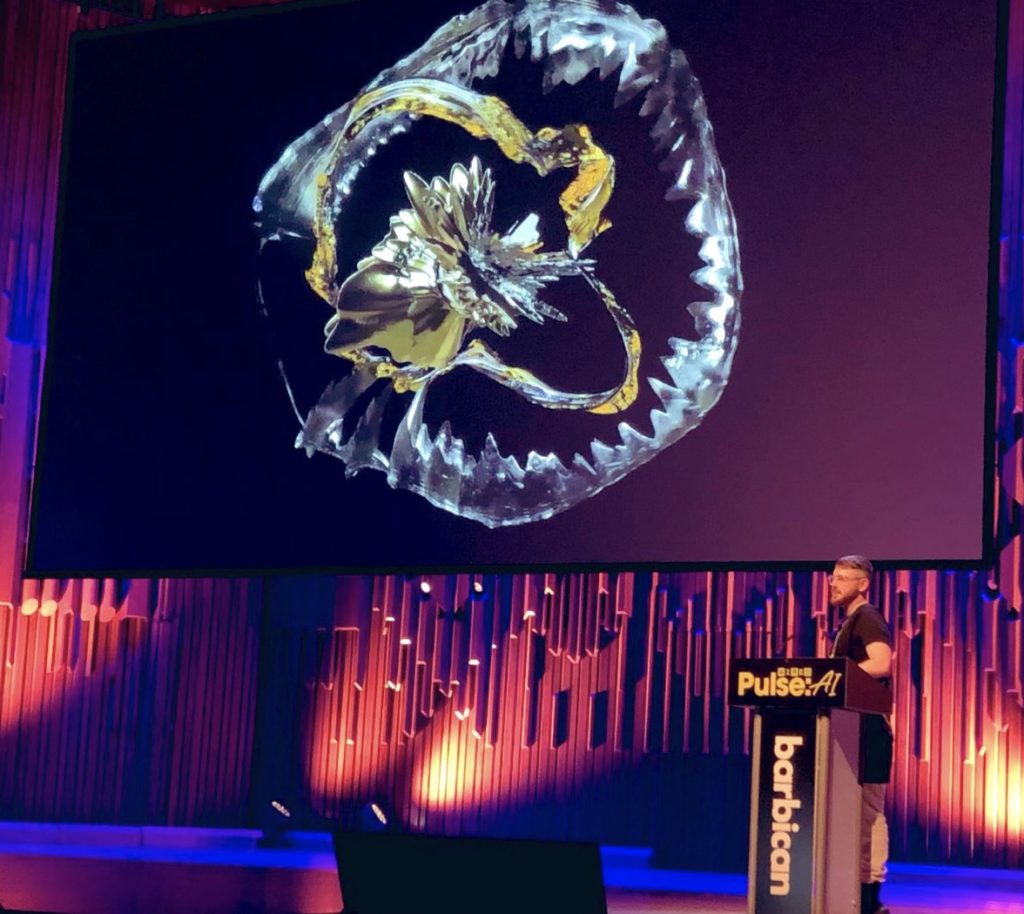
I see the rise of ‘centaur-publishing’ where there will be new forms of writing in collaboration with AI tools — perhaps even the virtual Stephen King AI that I mentioned above. There will be new prizes and competitions in the same way that there is now centaur-chess [TechCrunch].
Hopefully, we will embrace the new possibilities of AI-assisted creation in the same way as the Go industry has done.
“AlphaGo’s game last year transformed the industry of Go and its players. The way AlphaGo showed its level was far above our expectations and brought many new elements to the game.” – Shi Yue, 9 Dan Professional, World Champion on the Deep Mind blog.
There will always be purists, those who insist on human only creation, but I can bet you those people are still happy to use the internet when it suits them. Tools are tools, whichever way you look at them.
I hope we will embrace creative commons and remixing as mash-ups between human and AI become more accepted and celebrated for a new form of creativity.
I’m excited about the possibilities, for example, instead of writing stories for the ‘book’ container, what about writing your ideas for an interactive voice assistant like the Choose Your Own Adventure stories [The Verge], or writing an audiobook or audio drama first, or writing for an immersive augmented reality experience. The possibilities of transmedia become even more exciting with AI assistance, especially as an independent creator.
Looking at the broader impact of AI, many talk of the loss of jobs, the need for retraining, universal income of some kind so that people can afford to live, and so many basic tasks being done by AI that people will have more time to do the things they want to do — like write.
The human drive to create is innate within us all, and some of us want to express ourselves in writing. People will have more time, so people will consume more, but they will also create more.
Teaching writing has always been a part of the author business model [Alliance of Independent Authors] — so this will only become more applicable in a future with more creators. Expect to see a boom in books on writing, creative courses and particularly, in-person, human-led experiences like retreats, live events, and conferences.
(8) Print publishing will move to a greener, sustainable model with AI-assisted micro-print-on-demand
I absolutely believe in the future of print as a format that readers still want to buy — but not in the way that publishers currently produce print books.
Current publishing models are incredibly wasteful with huge print runs, returns, pulping and some books ending up in the landfill. Plus, many are printed a long way from the final store with the associated shipping and handling issues.
With the price of paper changing [Publishers Weekly] and the shift to green economics and ‘buy local’ in a world of climate change, I can’t see how this current publishing model will be allowed to continue. It’s possible that it is only accepted now because so few realize how wasteful and destructive it is.
Print-on-demand is the most sustainable option for print publishing. When a customer orders a book, one copy is printed and sent to them. No waste, no pulping, no returns. Just a happy customer with a print book.
Of course, right now, print on demand happens at specific hubs and is more expensive than bulk print runs but that could change if the model shifted.
AI-driven print-on-demand in micro-locations, maybe even in bookstores like the Espresso Book Machine, will enable bookstores to localize as well as react to fast-moving changes in news and social media. Something happens and people want a certain book. Bookstores print a copy in the back and put it out in the store and if customers want it, more are printed on site. This ties into the more localized model of bookstores that Mike Shatzkin talked about recently:
“… we need smaller stores with much more rapidly rotating title selection, probably driven algorithmically by sales signals and social media signals more rapidly than human buyers could arrive at answers poring over spreadsheets.” [Mike Shatzkin – Idealog]
I wrote several years ago about how VR and AR could change bookstores and still believe it could enhance the shopping experience by individualizing recommendations and enabling physical stores to have a better online presence, and also to offer more books in-store with AR displays. [FutureBook]
(9) Expansion of mobile reading + micropayments enabled by 5G mobile and blockchain technology = explosion in reading
This model is already happening in China with many people buying and reading within the WeChat eco-system paying with micro-payments [FutureBook].
Facebook is introducing its own cryptocurrency, Libra, and this may enable similar types of behavior on the mobile, social platforms used in the West. [TechCrunch]
I already sell my ebooks direct through PayHip as well as lots of other online stores, so I’d be happy to sell my books on Facebook directly, too.
By 2025, there will be another 4 billion people online and most of those will be accessing the internet through mobile devices. This is why Streetlib now has a publishing portal in every country, in every language, positioning themselves as the portal for the 2020s (and why I am now distributing on their platform as well as others).
The massive growth of digital book sales (ebook and audio) is not in the US, UK, Canada, or Australia. It’s everywhere else — and most of those countries don’t use Amazon to shop for books.
Micropayments for pages read through mobile platforms will suit the next generation of readers, and if creatives can use blockchain technology to tag intellectual property through the supply chain, then revenue through these new models could be truly exciting. If you own global rights to your IP of course, which makes the independent author model even more viable. [Alliance of Independent Authors – Blockchain for Books].
I hope this gives you a sense of the excitement I feel right now!
If even some of this is possible in the next ten years, what should we do in order to surf the change and take advantage of the creative possibilities?
(A) Embrace the tools, don’t fight them.
We are not looking at an artificial general AI in the near future. There will not be an AI just like me or you sitting at a laptop in a cafe creating stories and books and hoping to change the world.
But you can expect specific tools emerging from the new world of deep learning + big data, a bit like your phone is filled with apps that you use every day, even though back in 1995 you didn’t know you needed a mobile, and in 2005, you didn’t know you needed a smartphone with internet access.
Authors have always used tools. Even pen and paper augment your creative brain. Writers embraced the typewriter and then the word processor. We use dictation to write faster (and recently, I have switched to an AI transcription service, trint.com to transcribe my dictated files as it is faster and cheaper than human services).

In the last ten years, we have started using writing tools like Scrivener, formatting tools like Vellum, and publishing platforms like Amazon KDP or Kobo Writing Life, as well as print-on-demand platforms like IngramSpark and audio services like ACX and FindawayVoices. [More tips in free ebook, Successful Self-Publishing.] We use the internet to publish and market globally, and social media apps to connect with other authors and the reader community.
Authors and publishers who have embraced the ‘new’ tools of the last ten years have done very well indeed — and I, for one, intend to surf the wave of what’s coming next.
So how will you use the new generation of tools as they emerge?
(B) Double down on being human
Publishers are businesses. They will use whatever tools they can to bring down the costs of doing business and authors are just content creators at the end of the day. Yes, your editor may love you, but it’s the accountants who make the decisions.
You cannot win on speed when an AI can write a screenplay in two minutes, or generate a textbook, or translate a book faster than you can read this sentence.
But there is one thing that you can do that AI cannot — be you.
Move away from the ‘faster is better’ model to ‘artisan craftsmanship.’ Stand out by having a unique voice. Don’t write anything without giving it your own authentic stamp. Focus on local, imperfect, real connection with other humans.
Everything you do needs to be personal. Use your experience and your voice to connect in the written word, but also by moving into voice and even video if that’s your preferred medium.
This is why I am doubling down on voice technology — narrating my own audiobooks, creating Alexa Skills, writing a travel memoir in real time on my new show, Books and Travel, and helping people know, like, and trust me so they are interested in what I create over time.
I’m thinking about how I can do more artisanal creation, for example, limited edition hand-printed books on hand-made paper, as well as creating experiences, for example, join me for a creative weekend in Bath where I will show you the literary places that inspire me and help you write your own book.
In conclusion, I believe that the next ten years will bring an even bigger shift than we have seen so far as authors and publishers face the promise and the challenge of AI-enabled technology. I’m excited to surf the change and I hope you will join me on the journey!
Recommended Resources:
These are some of the blogs, books, and podcasts I recommend if you want to learn more about what’s going on with AI. I listened to most of the books in audio format and then bought the hardback editions as well.
- WIRED magazine and The Verge blog for regular updates on the applications of AI. Tech-focused but not in tech-speak 🙂
- Sleepwalkers Podcast – AI is here already, it’s just not evenly distributed. This podcast is much broader than the publishing industry but it’s a must-listen show to get a sense of what is going on right now.
- AI Superpowers: China, Silicon Valley, and the New World Order – Kai Fu Lee. China aims to overtake the US with AI technologies by 2025 and be the global leader by 2030. They have changed their school system to achieve that, and are changing society to take advantage of big data. A fascinating book that will make you question your assumptions. Blew my mind …
- Talk to Me: How Voice Computing will Transform the Way We Live, Work, and Think – James Vlahos. An overview of the history of voice technology as well as how voice tech is being adopted in different demographics, from talking Barbie to helping dementia patients, and the emotional resonance of voice. This book made me decide to double down on voice in my own business.
- The Creativity Code: How AI is Learning to Write, Paint and Think – Marcus du Sautoy. Can AI really be creative? And what does it mean for us if it can? You can listen to my interview with Marcus on The Creativity Code here.
- The Big Nine: How the Tech Titans and their Thinking Machines Could Warp Humanity – Amy Webb. I am on the positive happy side of AI, so it was good to read this book and learn more about what could go wrong if we don’t engage with the changes ahead. This is exactly why people of all kinds need to learn about AI and get involved — including those of us who are not techy, as well as people from diverse backgrounds. #weneeddiverseAI
- Life 3.0: Being Human in the Age of Artificial Intelligence – Max Tegmark. An overview of the development of AI and how it impacts society now and into the future.
- Exponential Wisdom Podcast with Peter Diamandis and Dan Sullivan. The next billion-dollar markets are about to take off. A positive podcast on the opportunities of exponential technologies.
- The New Silk Roads – Peter Frankopan. Plus The Future is Asian by Parag Khanna. Both of these books are more about the growing dominance of Asia, where a lot of AI development is happening. So much of our news is siloed and focused on domestic issues that we have missed the incredible developments going on elsewhere.
- Homo Deus: A Brief History of Tomorrow – Yuval Noah Harari. How the world will stratify into those who can use and work with new technologies and those who can’t. We need to be in the group who can use it. Do not be one of the ‘useless class.’
- The Inevitable: Understanding the Twelve Technological Forces That Will Shape Our Future – Kevin Kelly. A framework for looking at the world and the changes to come with the positive slant that Kelly always brings to his work — and why I have listened to this several times!
- AI For Everyone – Andrew Ng. Free multimedia course on Coursera. Very useful for understanding the language around AI and also its applications right now and in the future. He includes translation and text-to-speech as some of the things that AI does well.

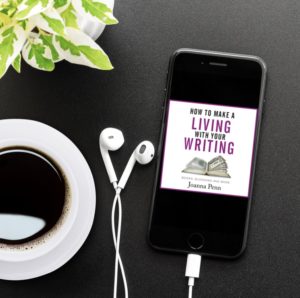
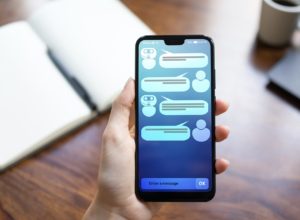
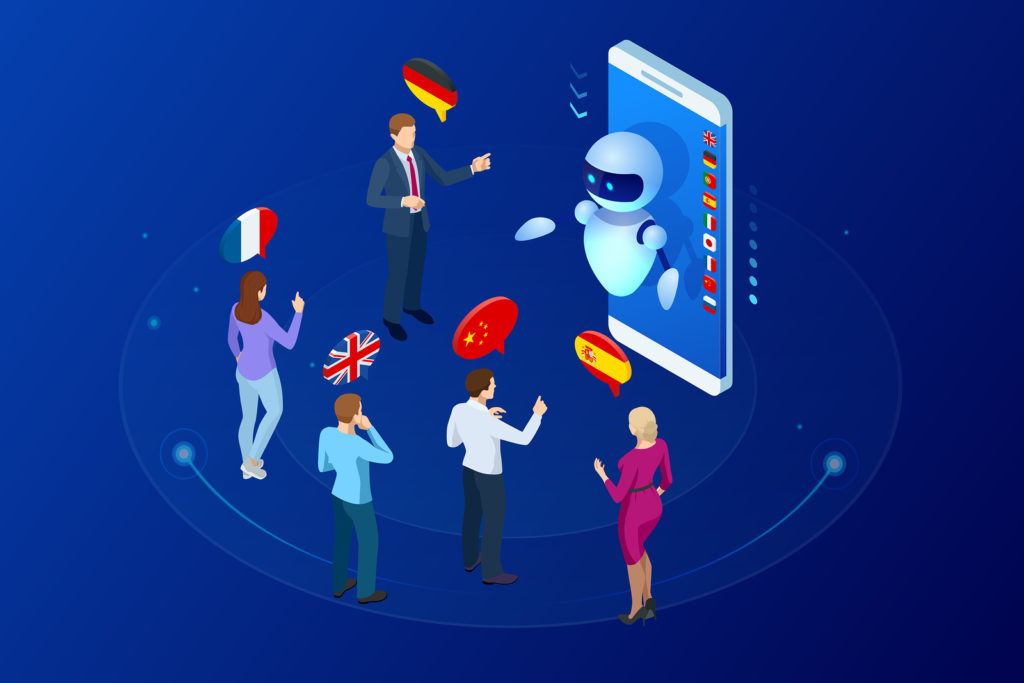




This is indeed a very interesting outlook. Just think about it; how AI has moved from a topic of dystopian sci-fi novels to becoming the real-life workhorse of the novel itself. Neural networks is my profession and books my hobby. It is strange, indeed, to be able to say that I am thrilled and horrified at the same time 😊. Anyhow, Wattpad are using AI already to cull through their millions of stories. There is a rather interesting article in “www.theglobeandmail.com” about Allen Lau, touching upon this very topic. Just os you know 😏.
Thanks Thomas, and yes, Wattpad amongst others are doing very well by using algorithms to sort through things to find the gems. I hope that will be further enhanced and available as discoverability for the rest of us.
Regarding Point 2:
I don’t seen a problem with generating new works based on the inputted files of existing authors. The Ai will be able to recognise unoriginal works and assign a copyright split accordingly. Eg: input 7 Stephen King works and 3 of your own for a 70:30% revenue split, etc. This would mean that anyone using 100% of unoriginal work to create new work (without using a licensed authentication key from the Owner/Publisher) would receive 0% revenue split. No incentive for scamming there!
This wouldn’t just apply to eBooks. Even print media will be run through a plagiarism checker and have a revenue split assigned to it.
My assumptions are based on the use of Ethical Ai.
We have to be prepared for the use of Unethical Ai as well.
Meaning: Ai written, supplied, or used, without certain parameters we require (ethics, revenue splits, plagiarism checks, authentication keys, etc). The reputation of web apps would be built around the ethical state if its service/code. Any unethical Ai usage could be blocked from distribution through services like Draft2Digital & Amazon etc.
Blimey: I’m only on Point 2 of your podcast and all this is falling out of my brain! What have you done to me? 🙂
I agree – and would love to see a license for ethical use of AI training for authors I love – but as you say and as I stated, many scammers out there are not ethical and as per the KU stuff right now, would no doubt find a way to get around it. But that’s no reason not to have licensing for those of us who want to abide by it 🙂
I do agree that some form of mechanism could be put in place to safeguard authors and their works. Many copyright texts already mention “derivative works” and the like. However, this I don’t see in practice…
“Any unethical Ai usage could be blocked from distribution through services like Draft2Digital & Amazon etc.”
…the problem being, that AI is really relatively simple math (depending on one’s point of view 😉, of course). It does not require mastodont firms to develop this. Google, Microsoft and Amazon (to name just these and to keep a US perspective) have simply been relatively good at making out-of-the-box frameworks for people to use without having to know or understand the underlying math. They can, of course, be regulated. However, writing predictive networks to produce texts can be done by anyone and cannot [be regulated].
On one [massive] book distributor which shall remain unnamed, even if it has already been mentioned, I have come across countless books that were nothing more than scrapes of Wikipedia articles on some topic, published via print-on-demand. Noting to do with AI, but it serves as a good example of the ingenuity of criminals and the prospect of easy money.
I agree – and with translation it will get worse e.g. someone could scrape a whole load of French thrillers, AI-translate them and publish them in English on Amazon and who would know?
As usual we agree on this. You have nailed it once again. I think the biggest question I keep coming back to is…
If the content is good, will the consumer care?
I don’t believe they will, even if they know, which they won’t.
At the end of the day, entertaining, high-quality content will always rule. Once the tech catches up and it can produced in AI the flood gates will be open. It’s going to get interesting for sure!
The consumer won’t care – and in terms of audio, at 2x speed + it doesn’t really matter who narrates it. That’s what I am listening at now!
Fantastic scary, Joanna. Especially for a new poet author out to change the world.
Podcasts and video to be mastered, I guess, plus lots of love readings.
Thank you.
Scary in an exhilarating way, I hope 🙂
As usual I thorough and informative…but mostly looking forward to your literary retreats. The more tech expands, the value of the in person connection reveals itself. Thanks for this and all your other tech stuff! 🙂
Thanks PK, and I will sort out my retreats at some point – on the list!
Great content as always, Joanna.
What is the name of the AI transcription service you use? I can’t find it in the notes.
Thanks!
I’m using http://www.trint.com but you can also use Rev or other services.
Great episode. I’d definitely be interested in more on this topic. As I shared on Twitter, your thoughts on being more human to stand out resonated with thoughts I’ve had recently that the future is in the bespoke, if you will….creating more custom, unique content rather than something for the mass market. The mass market is where “good enough” lives. The story is good enough, the narration is good enough, the translation is good enough. Now if you can take that good enough and make it better, make it unique, make it your own….
I also found it interesting that you listen to audio at 2x speed. I found when I did that, it took away the humanity and lessened my engagement. For the podcasts that I listen to regularly, and where the presenters are an important part of the experience, I usually listen to it at normal speed, maybe with silences trimmed.
Glad you found it interesting 🙂 What do you use to “trim silences”? I have heard there is an app for that?
It’s built into the Google podcast app. I discovered it stumbling around, in the play settings of the podcast.
Very nice remarks ,in deed! It is true that a.i is free and very capable.to write books in so many fields. But ,i agree with you that copyright protection remains fundamental to safeguard authors’future. Nevertheless ,we have to be confident in human intelligence and ,foremost,in authors’lmagination,an especially precious human gift .for the decades to home.thank you.
I particularly like the micro niche aspect. Well written!
What a fascinating article, Joanna! So much to think about.
It sounds as though AI will be able to do a lot of heavy lifting in some repetitive areas of writing, and the shift will be towards high level editorial and thinking skills, ie the innately human skills.
eg machine translation is still pretty dreadful and needs human editors. But at that level, it’s not a tidying or style job – it’s more about making sure the AI has ‘understood’ and rendered the meaning correctly, so advanced conceptual skills. This is the difficult and mentally tiring bit of translation (speaking as ex-translator).
This sounds to me good news! As you say, it shifts things away from the drudgery side to the deeply human capacities. Same with academic paper writing. Even simple referencing and recommender programmes have speeded up research so much, and leave the deeply human work to the humans!
My only question then is about the power of programmers to channel the direction of thinking. I think that wilful acts of randomness will become a political statement.
Voice borrowing sounds like a brand-licensing issues and there’ll be illegal knock-offs just as there are now 🙂
Fascinating times.
Glad you see it as a positive too, Jules. I agree on translation especially, which is why it will work best for non-fiction first, and as you say, it’s a tool, not a replacement!
Hi Jo
Great article, thank you. I notice that you haven’t included Simon Wardley’s work in here. Simon’s done some great work in establishing and forecasting future commercial, industrial and technological development, whilst also focusing on how to define, adopt and deploy the best strategies for exploiting or defending against them.
I spent about a year researching some of the ideas and I’ll try and write a more detailed response to your blog over the next week.
If you want to have a look at the source go to https://blog.gardeviance.org/2017/04/the-book-so-far.html?m=1
All the best
Robert
Thanks Robert, I haven’t heard of Simon Wardley so I will check him out. Thanks 🙂
Hi Joanna, I’ve been listening to your podcast for years and years. Maybe it’s because I’m a rarity — a fiction author who’s also a Silicon Valley tech geek — but I found this episode absolutely AMAZING. The amount of time and care you put into your AI research make this the best Creative Penn podcast episode ever. I agree with your top-line observation that AI has broken through and become a here-and-now phenomenon, no longer a far-off futuristic prospect.
What sets you apart from tech pioneers in the space is that you identify some of the possible ethical gray areas and the need to flag bad actors, rather than just celebrating technological advances without any thought given to their practical effects on the industry—or on authors’ livelihoods.
Your point #2 seems to be generating a good deal of discussion already. A complicating factor, however, is that identifying a work as 30% Stephen King, 30% Dan Brown and 40% Joanna Penn won’t be immediately apparent to the end reader, and when you run the finished text through a different AI book-writing algorithm (remember, there will be dozens of these, not just one), the results may be radically different. In fact, when you run the same books through different AI systems that rely on different proxy databases with tens of thousands of titles, you’ll inevitably wind up with radically different stories, based on each algorithm’s text mining universe, topic modeling parameters, sentiment analysis and proprietary recipe.
I’ll be in touch later this month about a project a few of us indie authors are working on that intersects with many of the ideas you outline here. But more importantly, the entire indie author community will be discussing and debating these issues for years to come. Thank you for setting the table for us!
Hi JD, I’m so glad you found it interesting and thought-provoking even though you are already in the space.
I agree with that complicating factor – which is why I think the best way is just to say that it will happen and have a license to use the work in training.
Definitely get in touch about any related projects 🙂
Amazing podcast Joanna. Points 4 to 9 I can accept, but creation of content of all kinds and AI audio chills me to the bone. The thought of my children growing up in this cold world, when I consider how hard I parent to teach them the delicate inferences surrounding humans and our interactions, is absolutely frightening. And big tech does nothing to reassure me. I can only hope that there are people with both morality and brains who will moderate certain aspects. I have to say, listening to Neil Gaiman or Stephen Fry will always beat automated learning, and I never speed them up, because experience, pace and absorption are everything. To some extent life is a race, but if you don’t slow enough to use your senses it is pretty grey. So I wonder how much people will be naturally drawn to the uniqueness of human nature. Here’s hoping. Thank you as ever for your thoughts and generosity.
I don’t think it will be cold, Claire. It will be even richer than the world we live in now, with the associated good and bad sides of human nature – it was ever thus 🙂
But this is why I want to encourage creatives to be involved and not just leave AI development to those who are ‘techy,’ as we need as many different voices as possible to join in and create the future we want.
Thanks so much, Joanna, this was an awesome episode! It feels like a cheat sheet: you read thousands and thousands of pages, and then deliver it to us- distilled – in one hour. Wow! Thank you.
A very intriguing topic: we had a great family discussion afterward.
One could discuss for hours (over a coffee or two) but one thing I was thinking of is that authors or publishers will be the only ones to have the right to deliver their work for machine learning, for a fee or fee share, of course, but no one else can/should (unless agreed by the author). So the topic of copyright should be clear: no one can take Stephen King’s work and load it to their local AI to produce ‘their’ next novel, because it’s just not allowed. Perhaps something to add to “No part of this publication may be reproduced, stored…” at the beginning of our novels??
Thanks again 🙂
I agree obviously 🙂 but there is no legal definition of AI produced copyright as yet, so this is a grey area, and potentially who would know, especially if you did 10% King, 10% Patterson, etc … So glad you found it interesting enough to discuss with your family! and I love reading all this stuff, I am a super AI geek right now!
Remarkable post, Joanna. So much there it’ll take me several re-readings to digest.
One thought–isn’t there a significant difference between “translation” and “interpretation”? The problem with AI apps like Google Translate translating a novel is that it doesn’t pick up nuance or gradations of meaning or thoughtful choices between alternative word choices. All the translation apps I’ve experienced are still a long way from interpreting Shakespeare into Farsi without significant human intervention. Or at least that don’t produce risible and/or unreadable results. Maybe I’m just out of the techno-loop here?
That’s why I mentioned that non-fiction will be first and it will likely be the 80:20 rule, with the 20% being left to humans. Even a first pass with tweaks later will significantly shift the workload.
I can remember in the late 1990’s and early 2000s working with a programmer to build a learning machine for predicting human choices around a specific subject in order to build a more effective online course. I had a grant for that for three years when I was in Academia. Even back then I was amazed at how quickly the machine learned with not that many parameters (perhaps a couple hundred were provided). It wasn’t perfect when tested against actual human choices; but it was darn good. So, I completely believe everything you’ve said here now two decades later and much faster processing speeds.
Like many here, as an author, I see this with a combination of happiness and sorrow. Not so much sorrow, perhaps, as some fondness for a “simpler” time when craft was not only lauded but financially rewarded. Some of the capabilities you mentioned would be marvelous for me–like translation that’s automated and actually good for fiction. Iove the idea of having the primary translation done and then giving it to an editor for a week of fine tuning. Right now, translation services are simply far too costly for the average indie; and I personally don’t want to live in a single language world because English takes over. I like the cultural nuances of different language approaches.
I’m not as worried about nonfiction because already English is the dominant language in non-fiction and when translated, as you’ve pointed out, AI is already pretty good at it. I’m always amazed when I go to a foreign website and ask for the translation. For the most part it’s really good–even for longer articles. For those parts that are clunky it is still understandable. For nonfiction, I’m rarely looking for perfectly nuanced writing. I’m really looking for answers or instructions or one more piece of a puzzle to synthesize with what I’ve learned elsewhere.
I have to admit, I also love the idea of putting in all of my work and getting some first drafts automatically generated with a few parameters in advance. Though I write in three genres, I know that my voice and themes are across all of them. That’s why many of my fans (not all of course) follow me from one genre to the next. They like what is unique to me and my approach to story. But I’m not sure that 15 books is sufficient for training. If anyone is actually looking at this, sign me up as a volunteer! 🙂
The biggest mind-blower to me in your article is about voice and needing more voice data out there about me, for me, with me. It makes sense. After all, I use my voice remote with television, searching on my mobile, and getting map and location information. I also have audiobooks. Somehow, my brain just didn’t but all that static, fixed form content together with the need for me to be connected in a more dynamic way to all the content. I’m going to think on that and decide what my next steps should be. I am starting to narrate my own nonfiction. But I hadn’t thought beyond that.
Thank you. Thank you. Thank you, for writing this article and bringing all these things to the forefront. Between you on this and Kris Rusch on licensing IP beyond the book, I have turned my business planning upside down and backwards now. I only hope I live long enough to make it all work. 🙂
Thanks so much, Maggie. I’m so thrilled you found this interesting 🙂
1) “craft was not only lauded but financially rewarded” in simpler times – perhaps, but only for the very few. We are in more egalitarian times – and there are always pros and cons.
2) On English translation for non-fiction and not being that bothered about the little issues, that’s what I think too. We are in an era where I think people would rather have the information with some small issues than no info at all.
3) “The biggest mind-blower to me in your article is about voice and needing more voice data out there about me, for me, with me. It makes sense” . Glad you also see this as important. The more I learn about the growing dominance of voice, the more important this becomes.
I’m wondering if audio will be a better medium than video? Or is video going to be better since there are three media you can take advantage of, the video itself, the audio file, and transcription?
Copyright – why would an author get a fee from AI generated work that used an authors book(s) as part of the “make up”. We all “stand on the shoulders of giants” those same authors studied other authors and give no or little acknowledgement of this fact. Education improves over time as we learn from previous generations without Copyright fee until we use a textbook. That textbook is a reworking or assembling of existing knowledge based around a curriculum somebody else wrote who get no copyright fee from the textbook author(s). AI is coming to the masses, we will all generate our own content from multiple sources that we will individually select most often without a copyright fee as it will be for your own personal use.
It is interesting that you are developing towards travel and podcasts rather than writing fiction full time – the power of the audience. Ab great article from you with lots of superb comments and ideas – thank you.
The difference is that AI text generation needs a LOT of words to train on. Why shouldn’t an author get paid for training an AI?
I definitely can’t write fiction full-time. I think I am a 1 or 2 novels a year person, which is not a full-time output anymore, but that is fine with me. I love being a polymath!
I personally love audio, but video will always be great as well – you get to choose your focus 🙂
If Stephen King owns the copyright to an AI that was inspired/trained by Stephen King’s work.
Then does Stephen King own the copyright to the work of another human author who read lots of his novels and then went on to write novels that were very similar in style to that of Stephen King?
It’s very common for human authors to be inspired by the work of other human authors.
It seems to me that copyright laws that enable writers to claim ownership of AI works that were trained on their works opens the door to enabling authors to copyright their style of writing.
It seems to me that copyright law on styles of writing opens up a whole can of worms that is best be left closed…
…And indeed could greatly impede authors’ freedom of creation. If styles of writing were copyrighted then the act of writing a book would become a hellishly litigious affair where authors would have to carefully ensure their writing style did not excessively resemble the writing style of another existing author for fear of litigation.
Given how crowded the author world is, it would be impossible to ever be sure that your writing style doesn’t overlap that of someone else sufficiently to avoid the risk of litigation.
In fact, you would probably have to run your newly created work through AI style-analysis software after writing a book to be sure it doesn’t infringe another author’s style before publication.
Imagine how dispiriting it would be to spend two years writing a book only to find that after running it through some kind of style analysis software that it infringes the style of some obscure existing author you’ve never heard of and that therefore you can’t publish it.
Great blog post. Quick question: How do you find the time to read/listen to all this content?
And write?
And narrate books?
And promote?
And live?
I’m only partly joking. When I moved to being a full-time author last year, I was expecting to be blessed with more free time, not having to navigate a job and self-employment. But no, I’m just as busy as ever (although with the benefit of getting more done than I used to).
Being an independent author and creative writing teacher is exhausting, but fun.
Still, any tips on time-management please?
🙂
Audio is actually my super-power. I listen to a LOT of podcasts and audiobooks on at least 1.5x speed and then often find other content that way. But I also love this stuff so it’s my hobby as well as my job! I read fast and type fast – and to be honest, I don’t have much other life 🙂 I’m a happy workaholic! I just love love love my job!
Thanks Joanna.
On another subject altogether, have I seen your name down for Stokercon next year? If so, it would be great to say hi. 🙂
Yes, indeed 🙂 I will be JFPenn at Stokercon, my fiction side! Make sure you say hi 🙂
Hey Joanna, this is my favorite episode. I find AI fascinating and also terrifying. I was listening to this episode for the 3rd or 4th time this morning and I have a question about something you mentioned regarding voice search.
You suggested that an author who does not have audio content would be basically invisible to voice search, or something to that effect. So, I wonder, do you mean that by using voice search the various platform assistants won’t find an author’s works or that voice search won’t find an author’s audio content?
And along with that, is there a difference in the meta data that an indie author can include on all the platforms available for self publishing that is or should/could be different from that of what is used for traditional typed-in text searching?
It came across to me that voice search would render different results than typed text search, and especially with respect to audio content. Is that what you meant?
Tom
Glad you’re finding it interesting!
Yes, I mean that if you search by voice, the response is also by voice so you need to optimize for voice search. More on that in this episode: https://www.thecreativepenn.com/2019/05/13/voice-search-for-authors/
Cool, that’s what I thought. Thanks.